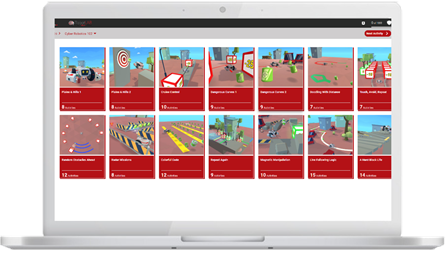There are many ways to teach and to learn, and one method that many schools are adopting is learning in nature. There is significant evidence that children benefit from learning new skills in the outdoors for many reasons. Many children are averse to learning math in the classroom because they feel they aren’t good at it or they don’t understand the concepts from methods used in class.

Taking the class outside is a great way to enhance learning math skills, and here are a few reasons why:
Playing outdoors is an effective way to enhance learning
Studies have shown that the traditional classroom is not necessarily the best setting for children to learn. It is highly beneficial for kids to play outside where they can exert their energy, explore, and get fresh air. Play is also an effective path to learning, as children enjoy it and the lessons are more likely to resonate with them. Most children see going outside to learn as a “treat,” especially in schools where activities like field trips or recess are limited. Learning through play and outdoor time is both fun and effective.
Nature puts math into a real-world context
Children can explore nature to put math skills into real-world context, such as by counting rings in a tree stump. Learning is best done using a variety of methods, so supplementing classroom time with outdoor activities helps give children experience and visual representations of what they are learning in class. Finding uses for math in everyday life makes math more enticing and exciting to learn, and helps children remember the lessons better from the real-world illustrations.
Outdoor play enhances cross-learning
By learning and playing outside, children can not only develop their math skills, but can learn more about science, the world around them, and social skills. From the example above, children can learn not only to count the rings in a tree stump but also how to tell how old the tree is from the rings. Playing outside also creates more opportunities for children to interact with each other and hone their social abilities. Children who prefer independent learning are also able to explore on their own and have some quiet time away from the classroom. Playing outdoors helps develop children’s natural curiosity while teaching them valuable skills.
Nature is full of patterns and counting
Nature is abundant with patterns and things to count, both of which are important early math skills. The outdoors naturally present a variety of teaching opportunities and show children that math is everywhere. Parents and teachers can use these naturally occurring examples to teach math skills. They can observe what children are interested in and curious about while providing answers and feedback, helping guide children’s discovery in a productive way.
Learning math outside can be a great way for students (not to mention teachers) to break up their day, get some fresh air, and explore math and other skills in a new and exciting way. Taking your child or class outside is a refreshing and effective way to introduce math skills and makes lessons more enjoyable and memorable.
Keep learning during COVID-19 with RobotLAB and CoderZ!

CoderZ is an online educational environment that improves students 21st century skills, while they are having fun programming their own virtual cyber robot. CoderZ and RobotLAB has different lessons to do at home! Check them out Here

